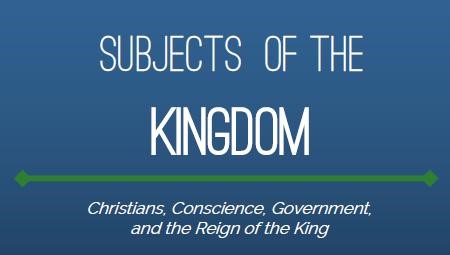My thinking on the nature and practice of discipleship in the kingdom of God has been maturing, off and on, throughout all my adult life, but considerations have been more focused and devoted during the last four years. It was about this time of the year, in 2015, that I began work on my book Subjects of the Kingdom.
In the summer of the following year, I presented a paper on the kingdom of heaven in Matthew’s gospel to a small group of Bible study partners. Later at the same event, I heard a far-better-crafted, inspiring presentation on discipleship in Matthew. I began to conceive of a new book that paired those topics, specifically in GMatthew, even inquiring with the other speaker about a possible collaboration. (Life did not permit work on that project for either of us. For him, it probably never will. For me, the jury is out.)
As time passes, reading and pondering continue to suggest strongly that pretty much everything important to God and God’s people can be subsumed under kingdom on the one hand and discipleship on the other. It’s not that I understand either of the very well. Neither percentage could be higher than 25%, and I probably understand twice as much as I live out! Kingdom is such a pervasive concept—and discipleship, so demanding—that I can consider myself nothing more than an ignorant, marginally articulate, trying-to-be-loyal subject of the King . . . and a pathetically inconsistent disciple.
The emphases do loom large: (1) kingdom and (2) discipleship. Here, I’m sharing words from two thinkers I respect. The first, brief quotation presents disciples in both their individual and collective senses, setting the idea of following the Master over against a misguided, sadly common “churchianity” ideal.
. . . [Our calling and destiny become] clearest as we find ourselves present to God Himself. This is one of the benefits of getting our eyes off of “the church organization,” or “the church leadership” and onto Jesus.
Perhaps my deepest cry is that the church, as fragmented and unfocused as it sometimes is, will somehow come forth and give birth to an entire generation of trailblazers who are so present to God and to their true calling/destiny in Him, that their imprint on the world is the unmistakable imprint of Jesus himself. – Roger Thoman, “The Call of God”
The second is transcribed from a speech that relates being a disciple to kingdom goals.
The cause for which Christ died is mostly going under in North America, and here’s what I want you to hear:
In good times and in bad . . . in times when the ground is fertile, and in times when the ground is stony, the Christian duty and obligation is always the same—and that is to be faithful to the gospel of a crucified Messiah.
And what we need at this point is a bunch of faithful witnesses.
You will not get us to play the game of fear and power, because that is not what our Savior taught us.
We are going to remain the faithful witnesses to the kingdom that no earthly power can resist—or, much to their chagrin, that no earthly power can create. We bear witness to the Kingdom that is coming. We bear faithful witness, and we will not kill for it, but we’ll willingly die for it. Because we won’t stay dead.
And we won’t spend our time trying to protect OUR way of life, OUR children, OUR religion, because protection is GOD’S job. What we will do is take up the cross, and deny ourselves, and follow the One that we call Savior and Lord. – Randy Harris, Pepperdine lecture 2016
And there we have it.
- Become imprinted with Jesus himself, so that as we walk and live, we are following him—disciples of the Messiah.
- Live with manifest allegiance to the crucified, risen, reigning Lord, who is king of the ultimate kingdom. It is his cause, not the enterprise of most “churches” today, that merits our energy.
I’m pretty horrible at acting from both these vantage points. But I’m convinced that they are the crucial ones.


